We touch and cry: an exhibition of old computers
Categories: Exhibition | Technology
By Pictolic https://pictolic.com/article/we-touch-and-cry-an-exhibition-of-old-computers.htmlIn room 304 of the second building of BSUIR, you can collect stingy male tears of nostalgia. Here from 10 am to 5 pm on Tuesdays, Thursdays and Saturdays there is an exhibition of old computers from the collection of Alexander Alexandrov, a 4th year student of the Faculty of Computer Systems and Networks.
(Total 56 photos)
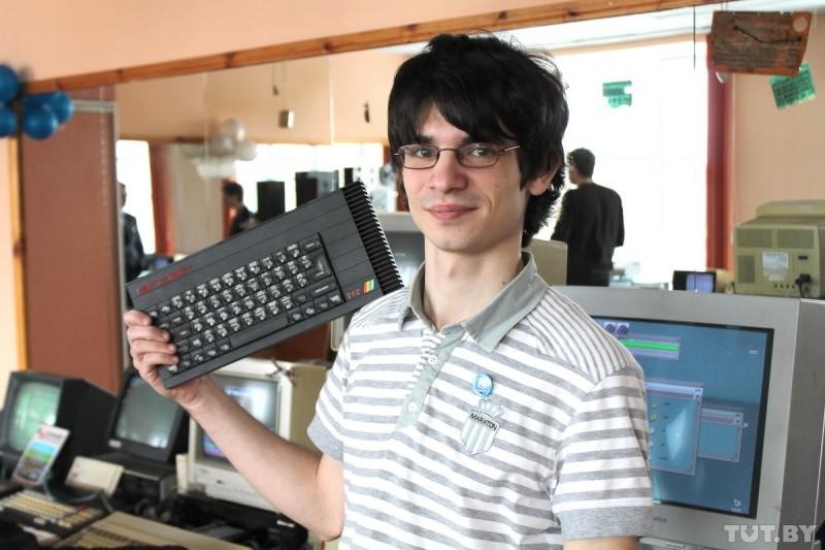 Source: tut.by
Source: tut.by
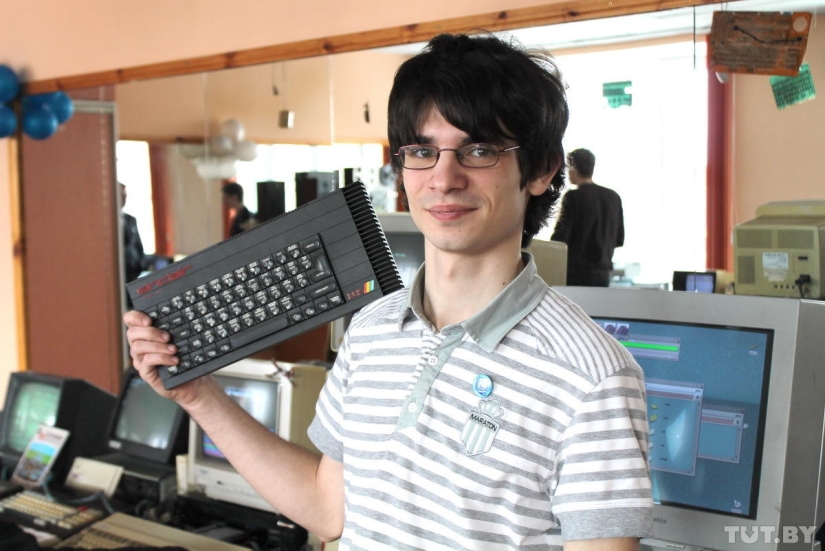
1. Collection owner Alexander Alexandrov
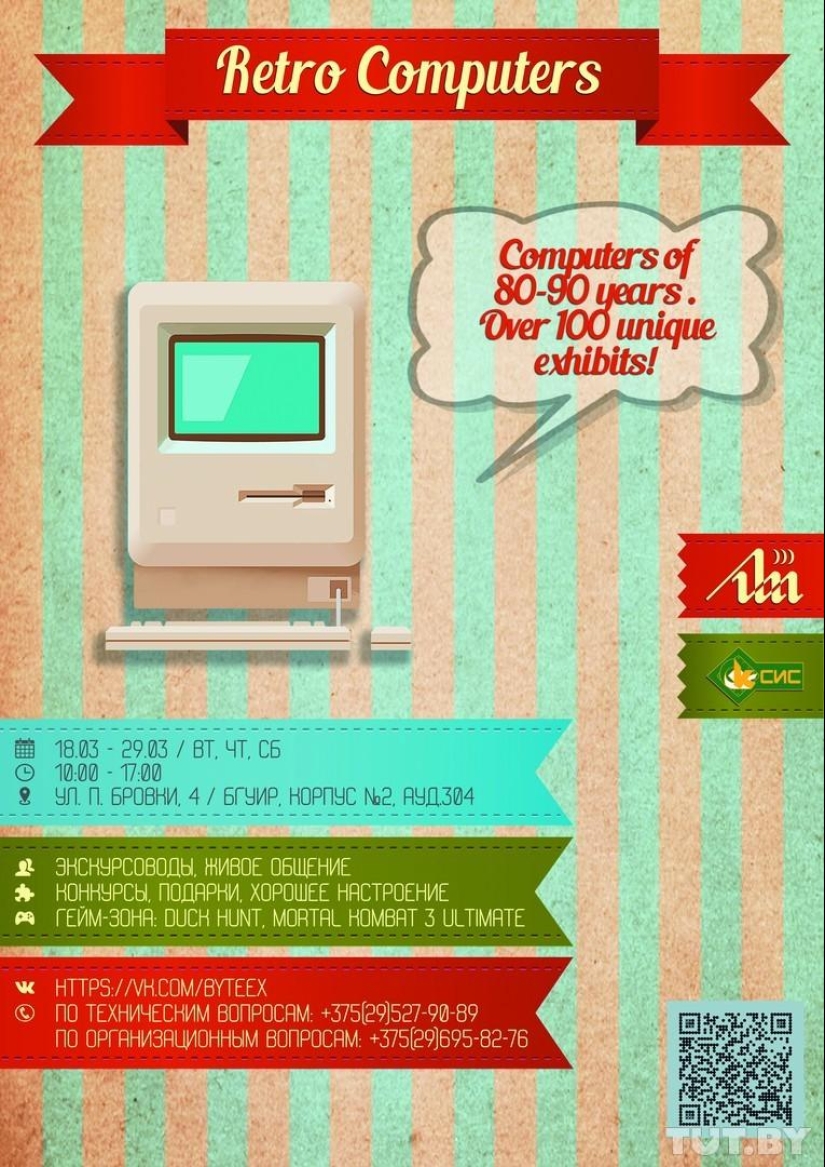
2. The exhibition is held for the second time at BSUIR, two years ago the exhibits were exhibited at the Union of Designers. This year the exhibition is open not one day, but three days a week until March 29 inclusive.
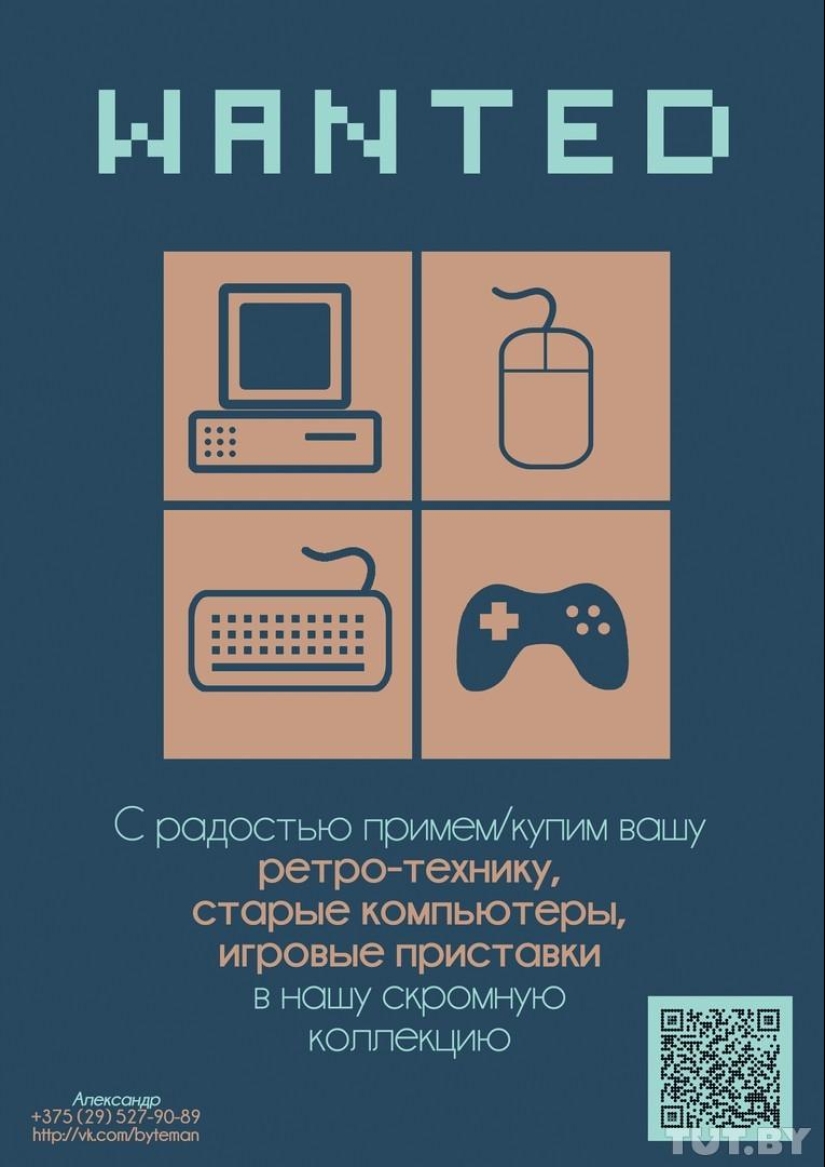
3.
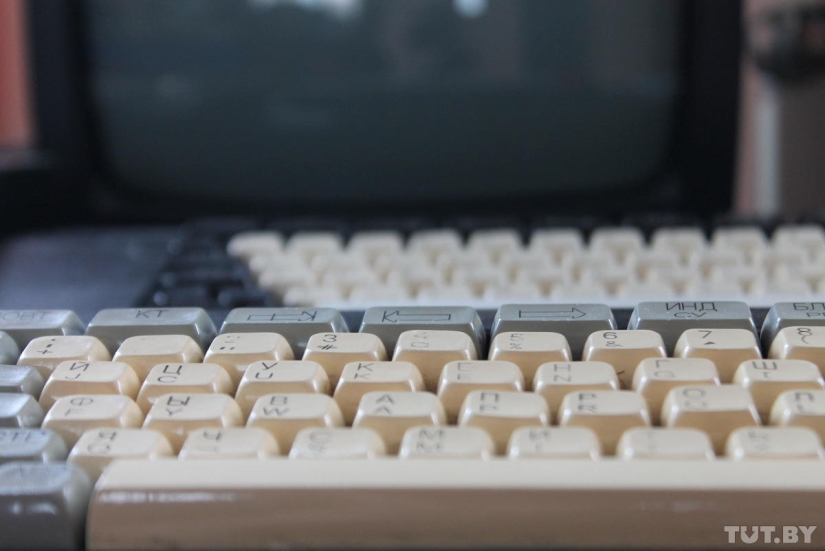
4. This time there are noticeably more exhibits. “I managed to drag a lot from Brest, where I have a “warehouse”, the university gave a large room for an exhibition and a repair base,” the organizer told IT.TUT.BY. He is glad that the exhibition turned out to be multi-day, now anyone can get to it. The exhibition, which is important, is also open on Saturday.
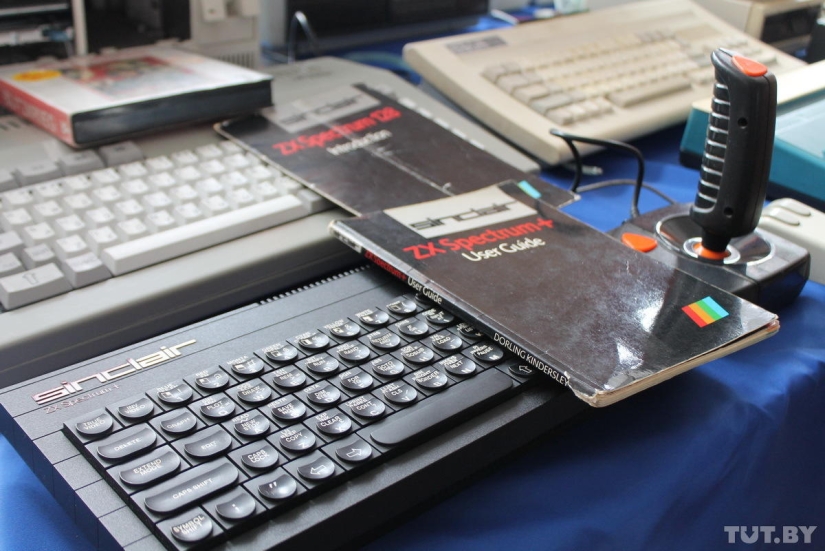
5.
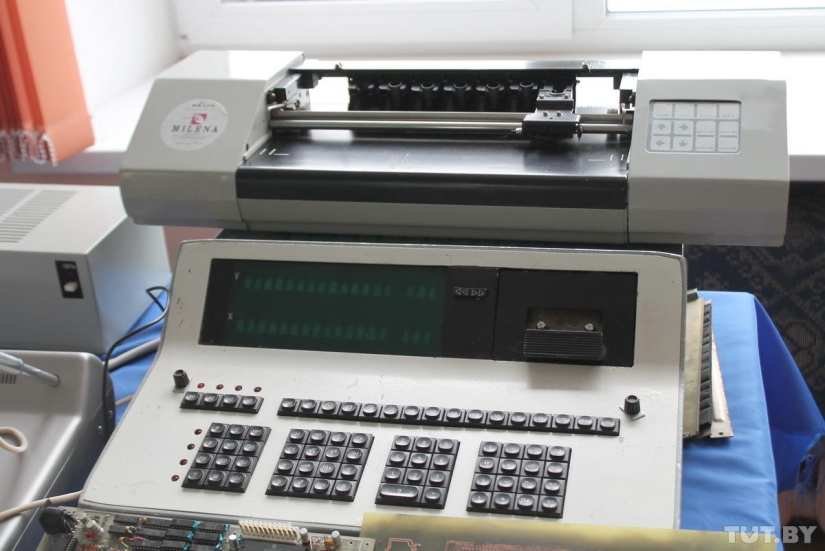
6.
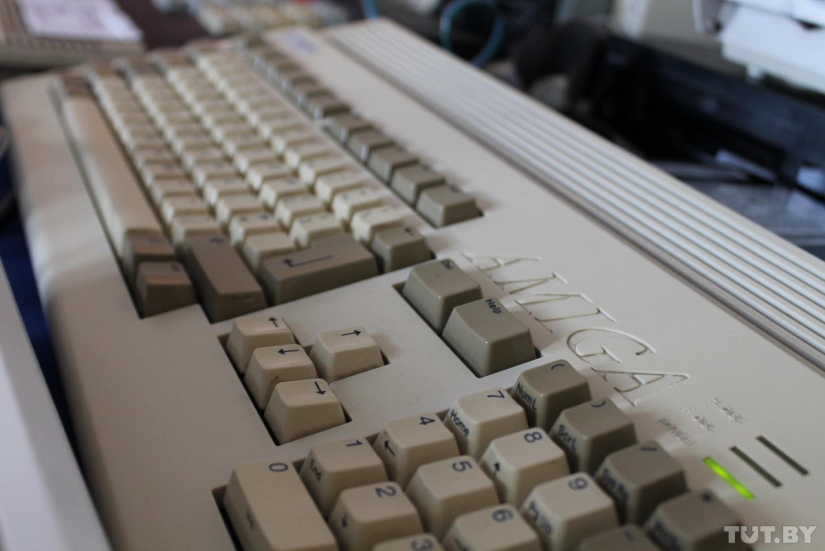
7.
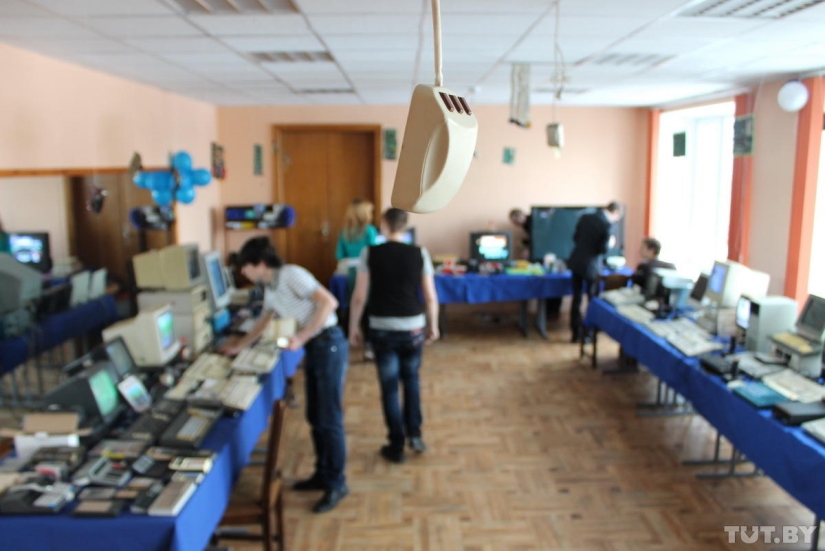
8.
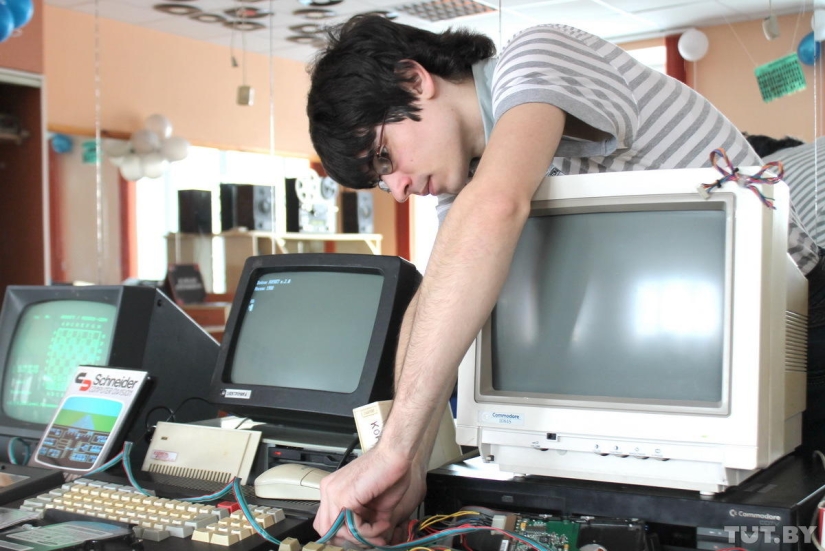
9.
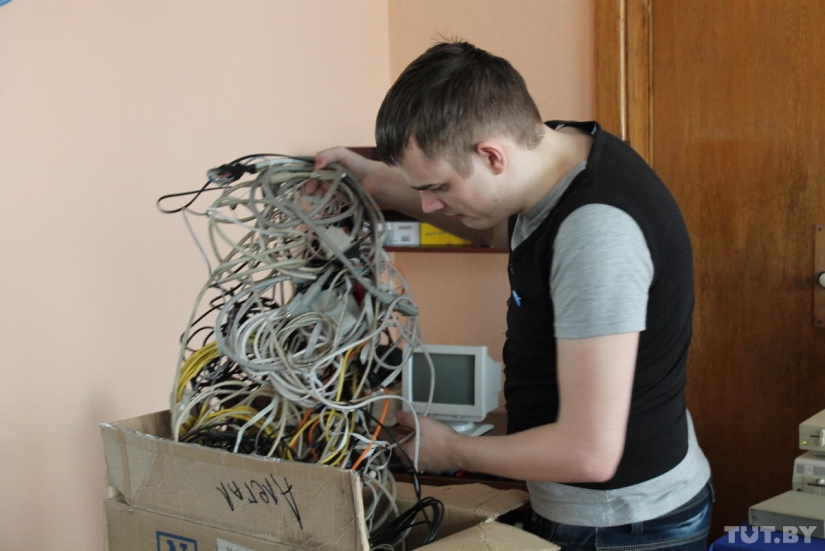
10.
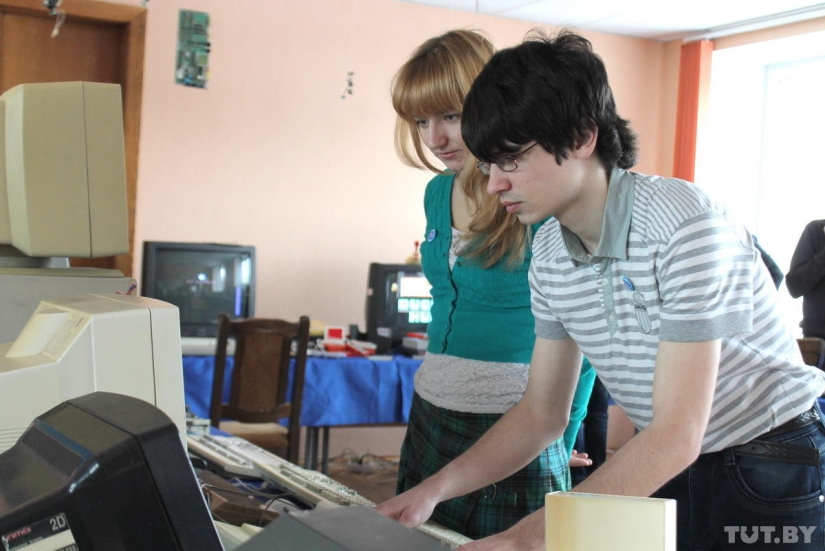
11. Since last year, the fleet of cars has noticeably replenished. Immediately after the exhibition, Alexander was presented with several retro laptops; learning about the collection, people gradually "got out of the closets" dusty gadgets of the past decades.
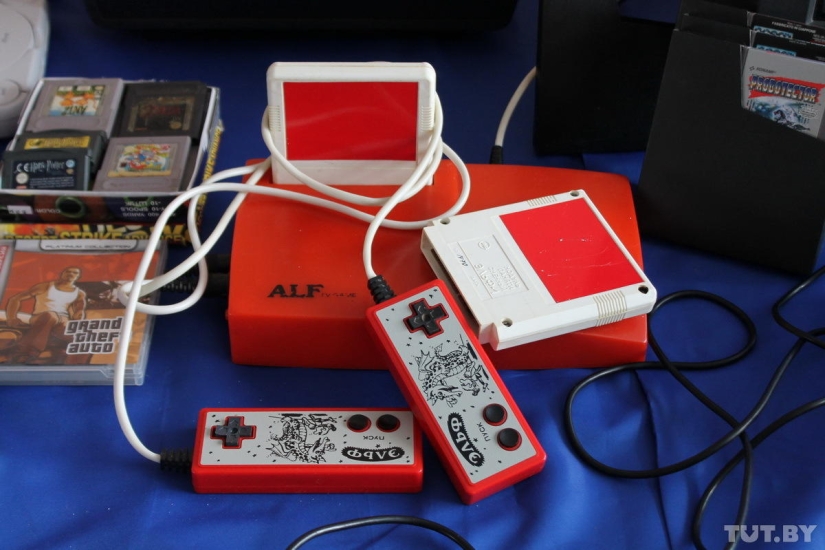
12.
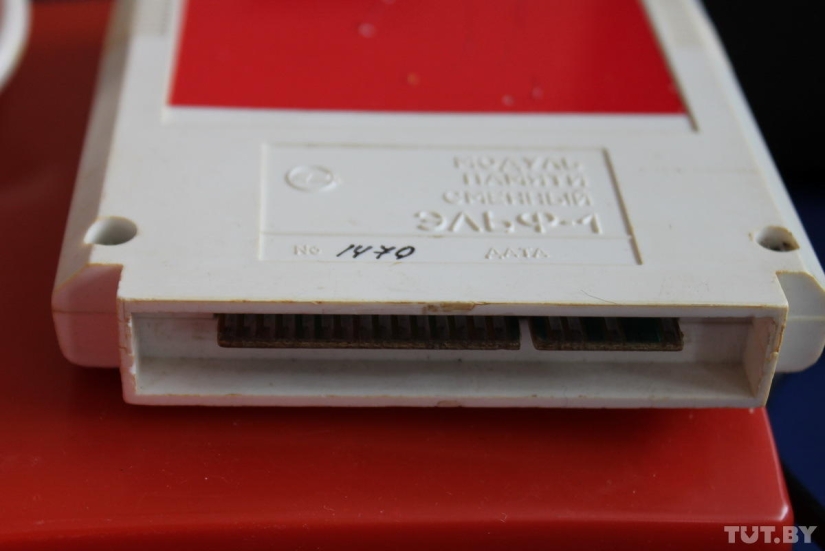
13.
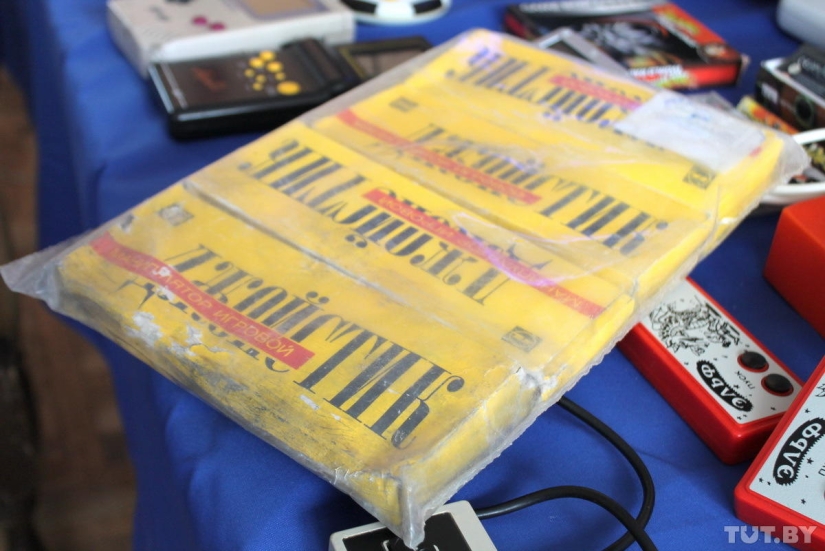
14.
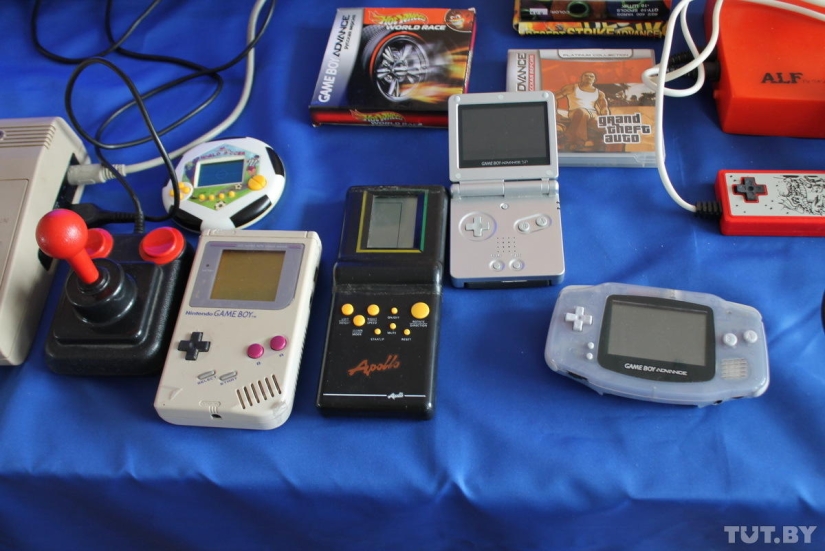
15.
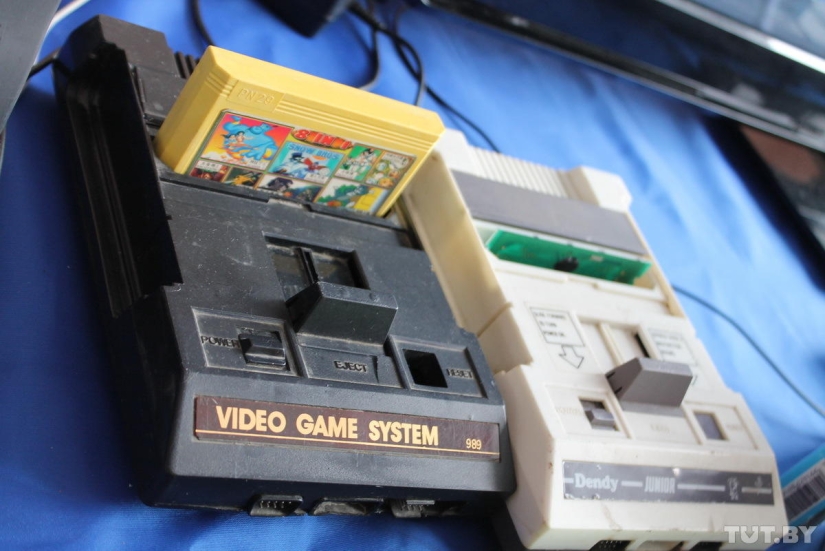
16.
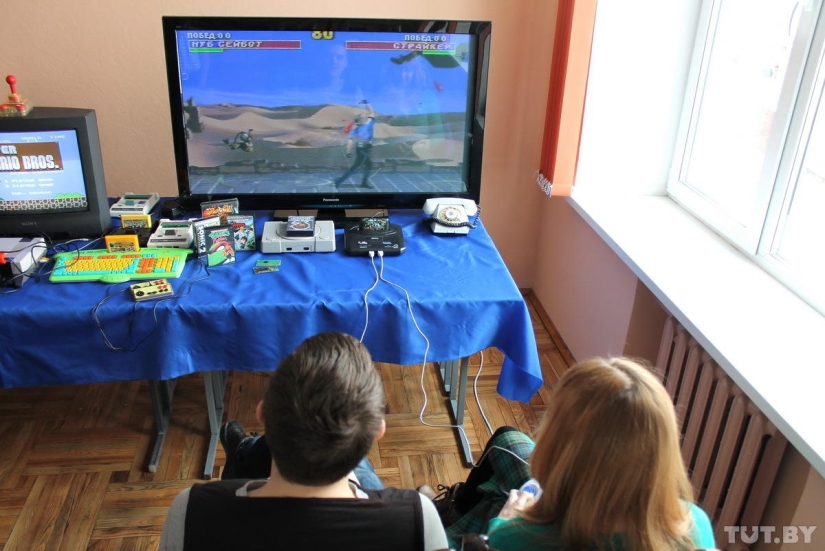
17. A full-fledged game zone also appeared at the exhibition: several prefixes familiar to “children of the nineties”, cult among this generation, Mortal Kombat 3, Duck Hunt and “tanchiki” (once this word was not associated with the World of tanks).
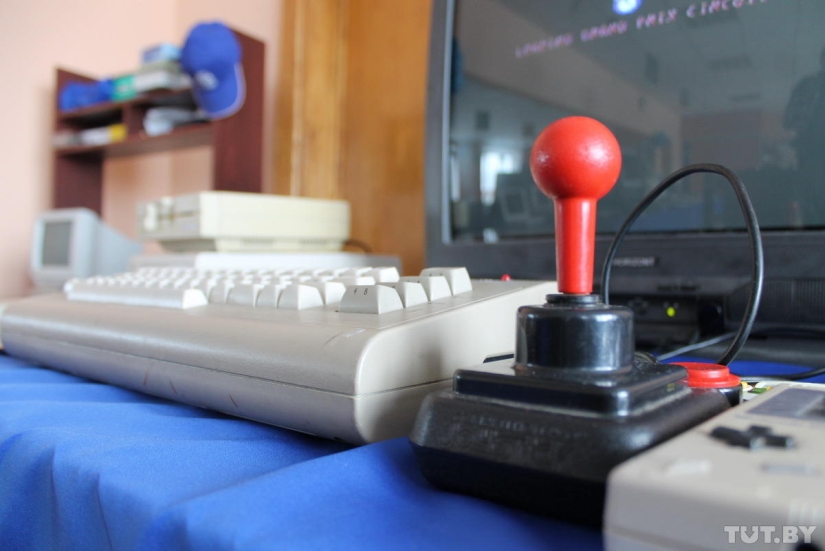
18.
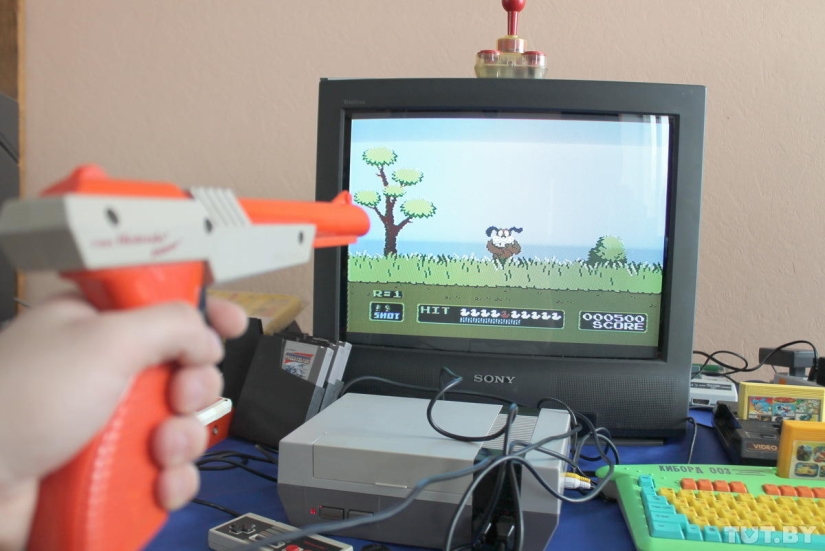
19. There is also the prefix "Elf" unfamiliar to most Belarusians - few know that the prefix based on the ZX Spectrum was assembled at the Brest plant "Tsvetotron".
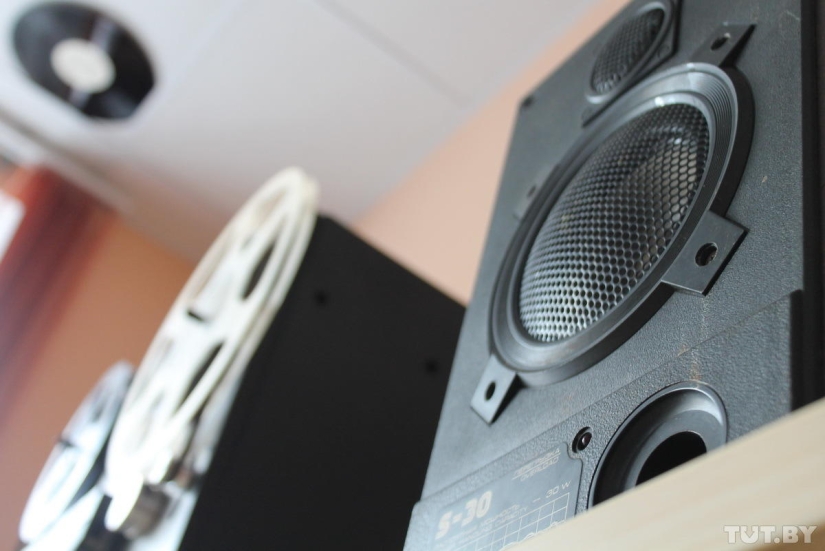
20. The only difference from the "battles of childhood" is that they take place on the huge screen of a modern TV. But the music at the exhibition sounds from speakers corresponding to the time frame of the exposition, not even cassettes of the 90s, but reels and records of the 80s play. True, some records do not play, but only support the surroundings, hanging on the ceiling.
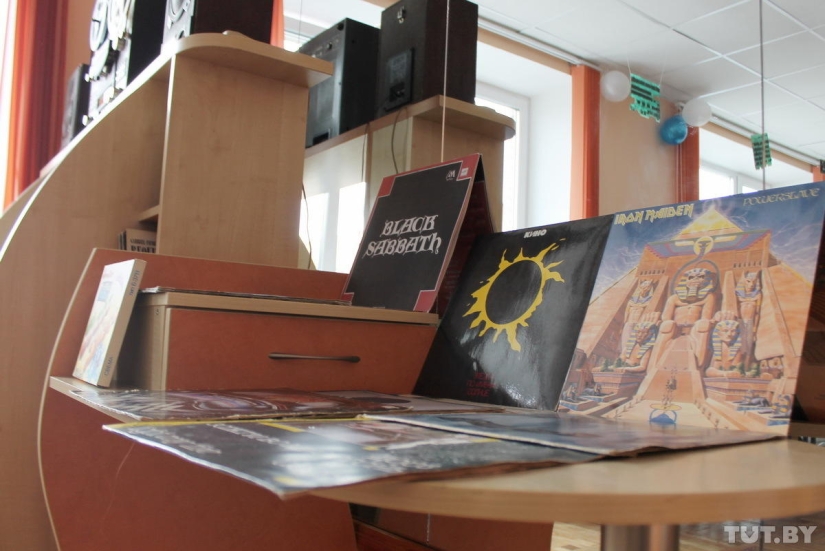
21.
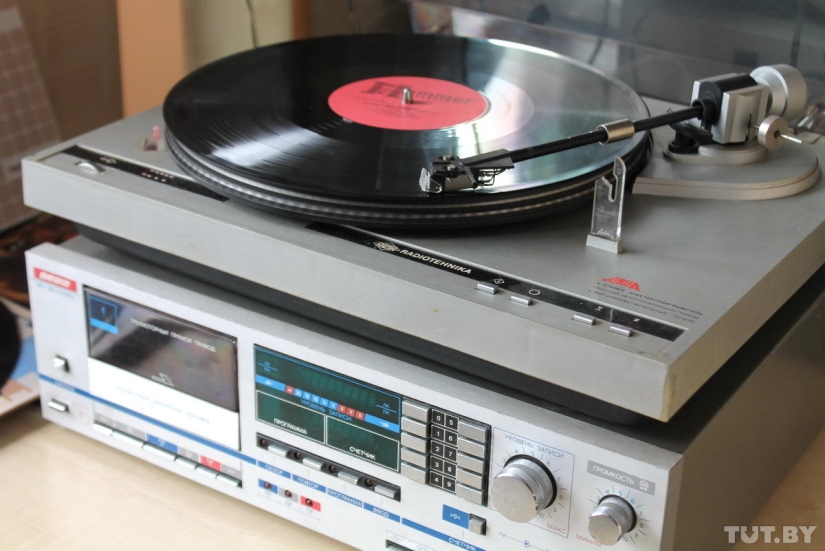
22.
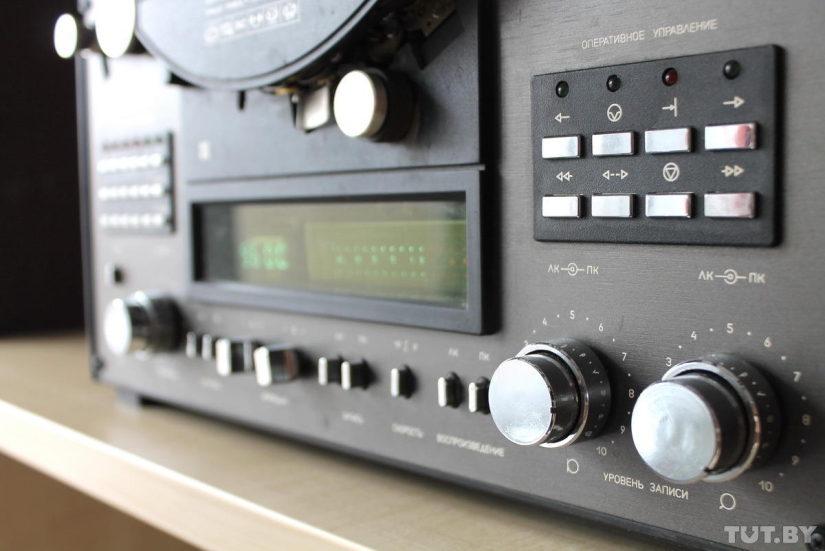
23.
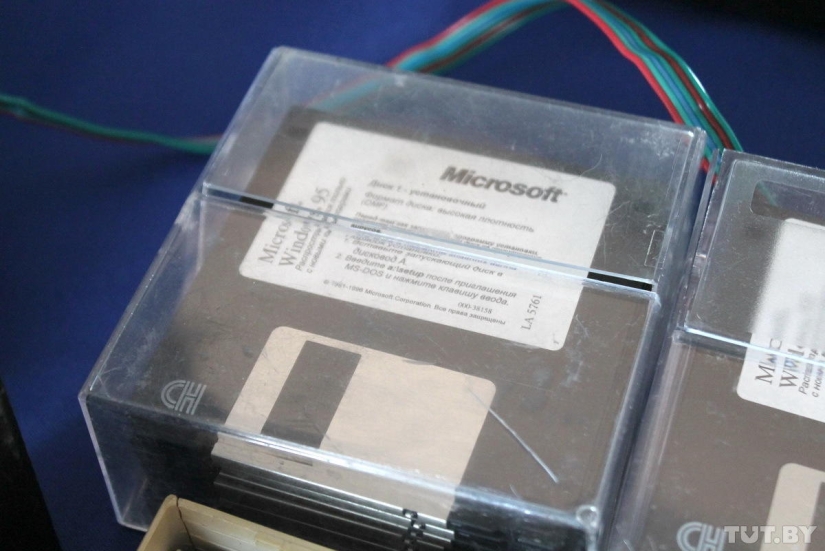
24. Not only Alexander did all this: a team of 9 students worked on the exhibition, and university staff also helped. Here are collected and programmable calculators, and computers in a case with a keyboard, and weighty laptops of the 90s, and even "Tetris".
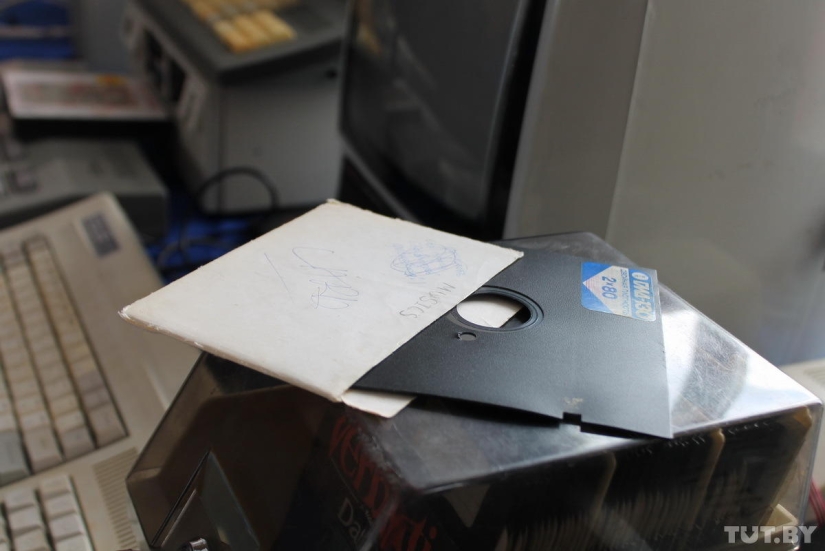
25. Programs here on floppy disks, cassettes, and sometimes punched cards. Microcircuits are hung everywhere, yellowed mechanical mice peek out from under the cabinets.
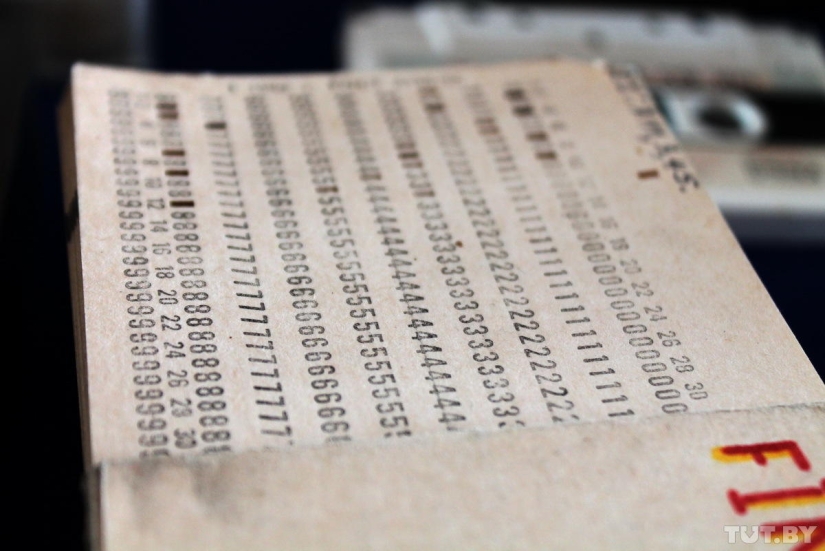
26.
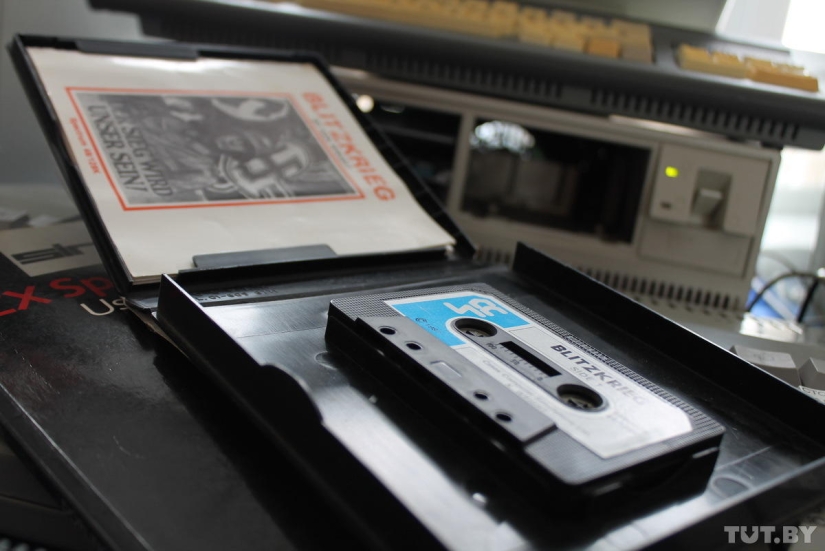
27.
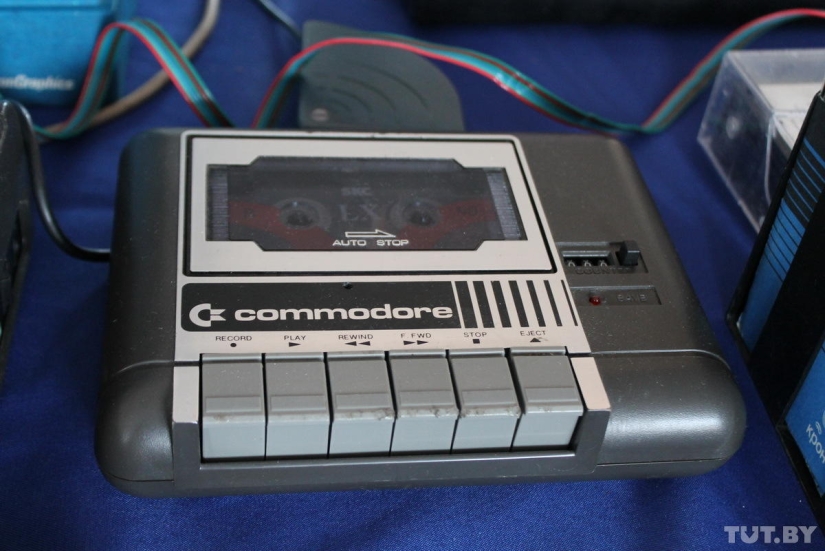
28.
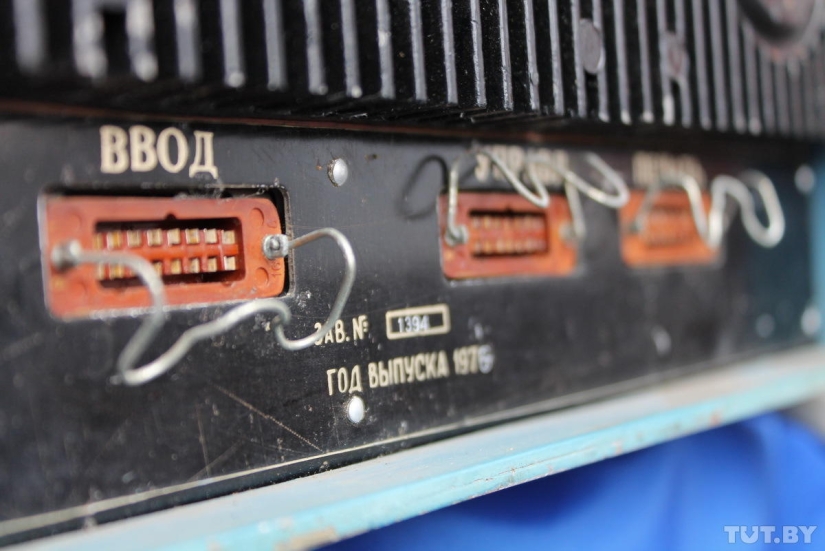
29.
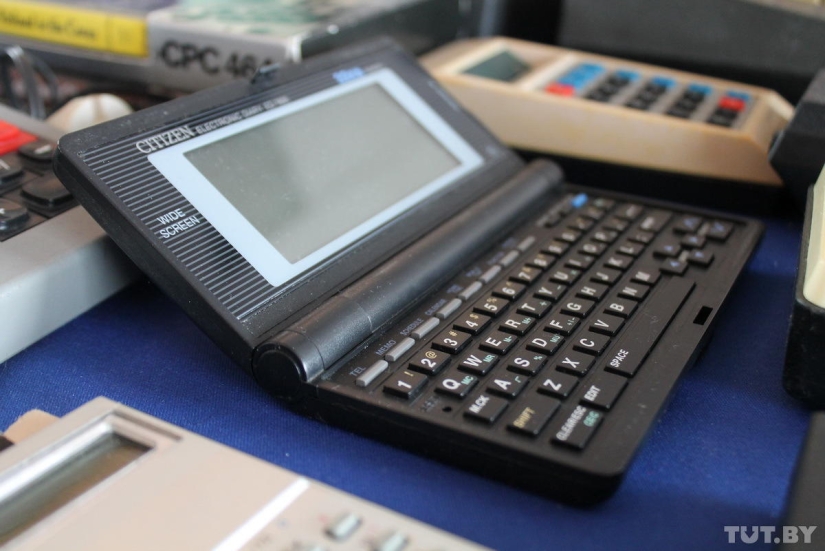
thirty.
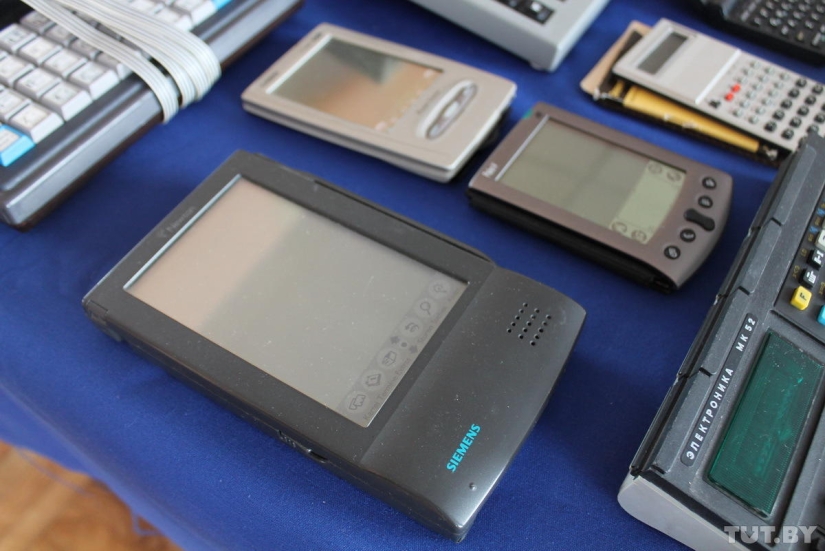
31.
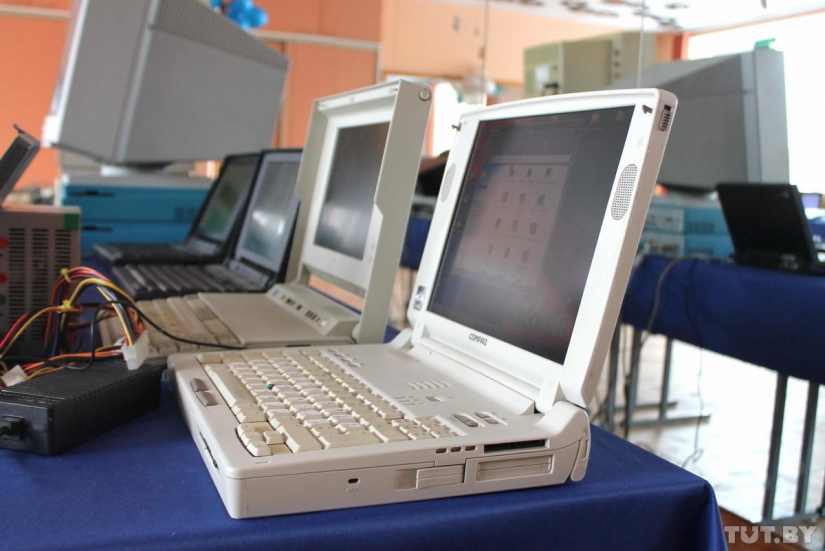
32. In total, there are about a hundred items in the list of exhibits, their total price today is two tens of thousands of dollars.
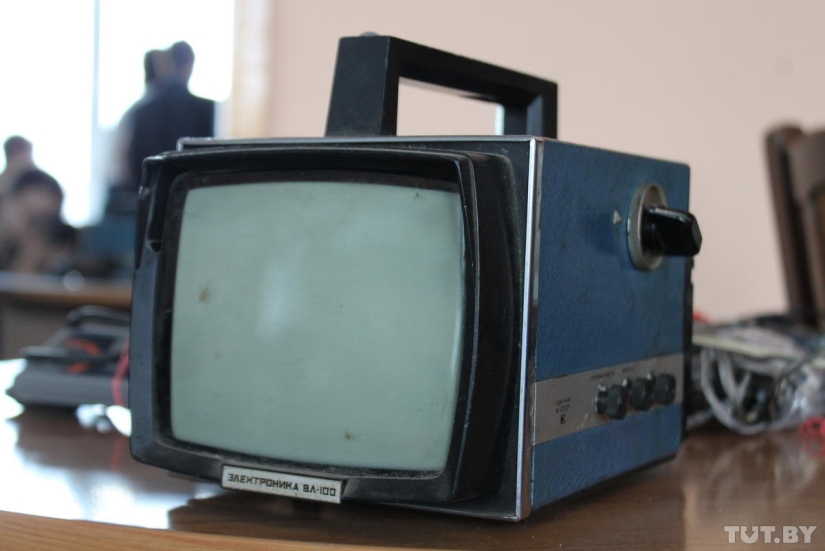
33.
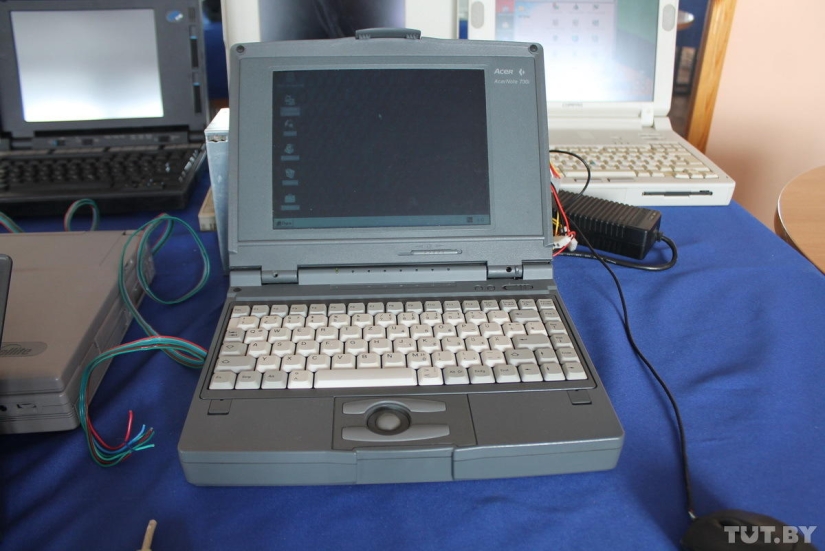
34.
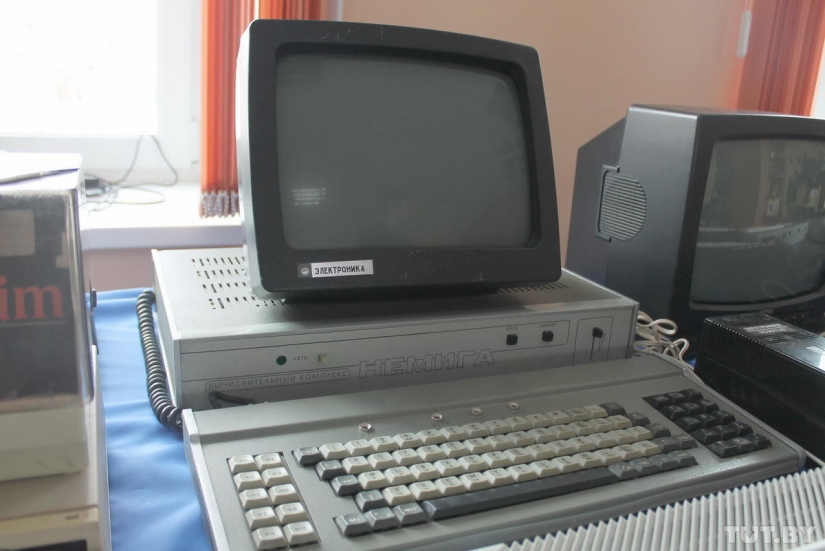
35. The Nemiga developed at RTI returned to its native walls.
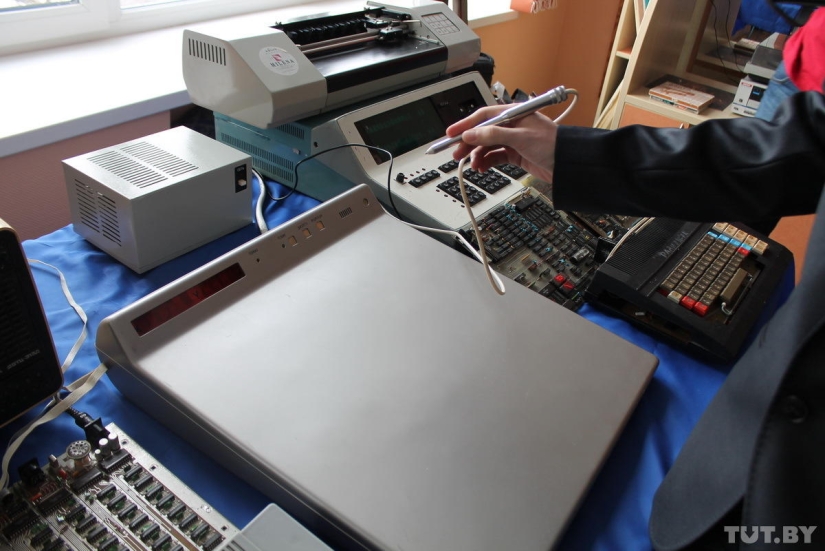
36. On the computer system "Electronics 15-VCM5" the inscription "Year of release 1976" flaunts, and under the next table there is a Power Macintosh G3 half-dismantled 21 years younger. On the table above him, a Macintosh Performa screen glows, powered by a Motorola processor that could surf the Internet 20 years ago and still can. Nearby is a weighty Soviet digitizer, a graphic tablet for engineers. On the table opposite is an iPad from the 90s, an Apple Newton MessagePad.
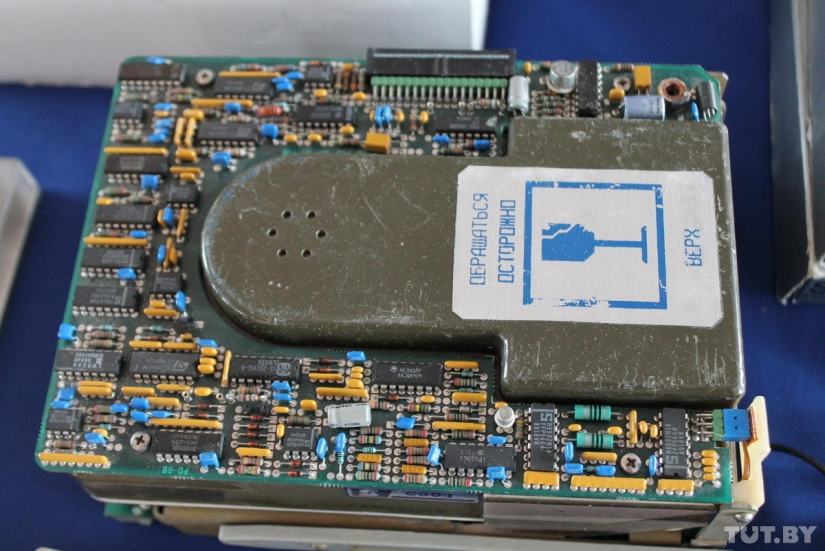
37.
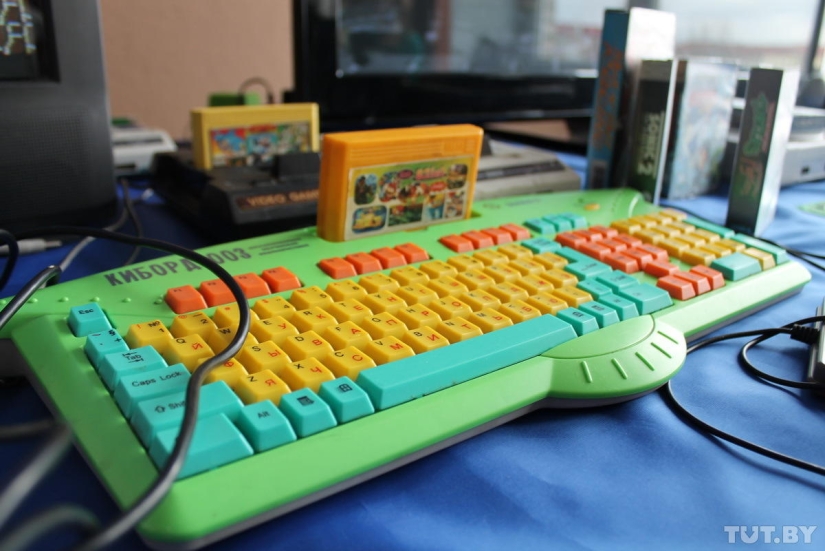
38.
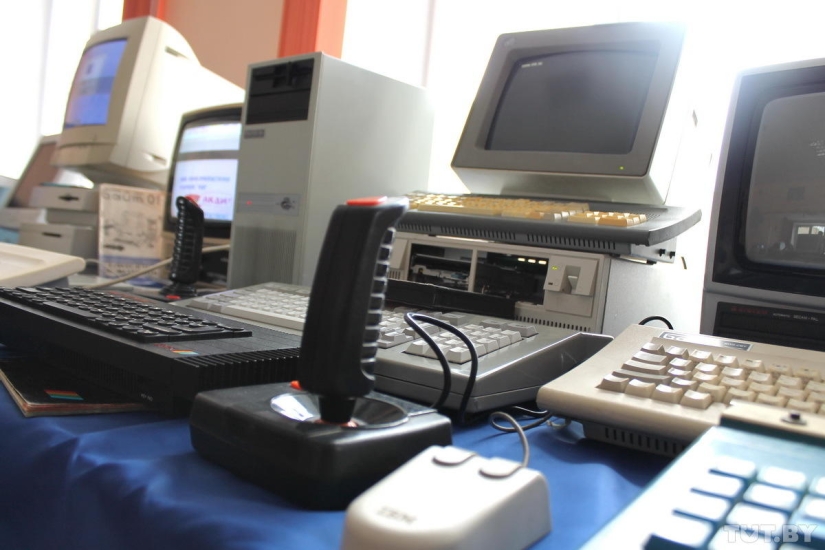
39. The most valuable computer for Alexander is the first Byte computer in his life, only a month younger than the owner. “More precisely, the very “Byte” is hidden in the closet, it does not have a couple of buttons,” he laughs, recalling his “first love”. He got a computer at the age of three.
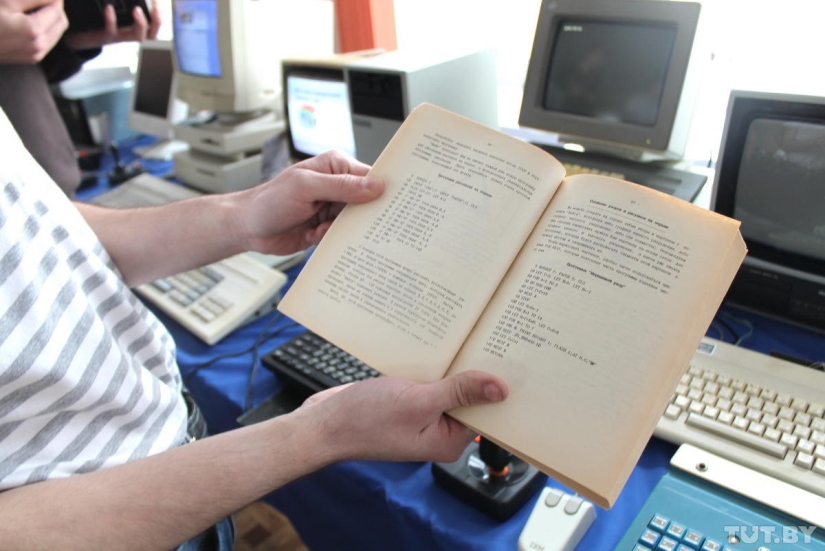
40. On it, he learned to read, and then to program in BASIC. At first, I simply “driven in” programs from the book, then modified them, wrote my own functions. “The book was the only one, now it is scribbled up and down with marks,” says Alexander. There are also quite a few written notebooks, because the computer quickly overheated, the programs were first “thought out” on paper, and then diligently “driven” into the device and hastily debugged, he says. And he recalls that after the first acquaintance with the IBM PC, he wrote a copy of its interface for his Byte.
But first of all, Alexander admitted, he played - there were two dozen cassettes, 20 games on each. But the process of launching games was different from “insert a cartridge and press Start” - you had to insert a cassette into a tape recorder, adjust the magnetic head for accurate reading, try to make sure that the refrigerator did not turn off at the time of loading.
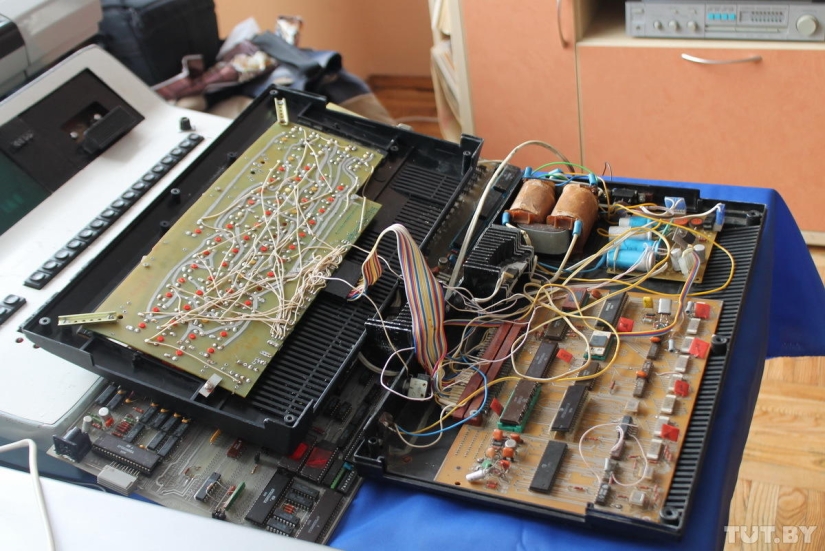
41. “Well, then I got to my father’s Radio magazines. I found a large diagram in a huge binder, read that it was a home-made computer, and said: “Dad, we will assemble it,” Alexander continues, opening the case of the “brainchild”.
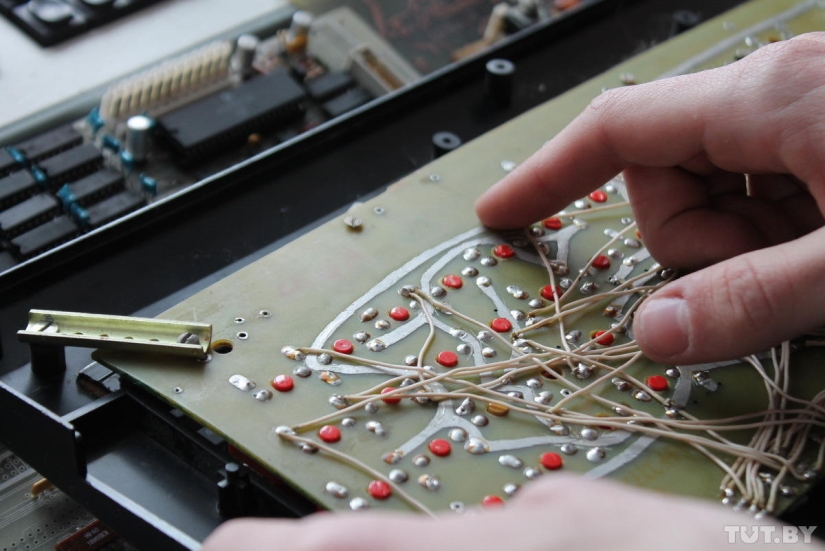
42. Handwritten marker "Sasha" is visible on the board. “My father didn’t have time for it, when I was 11 years old, I finished it myself, twisted it, assembled it.”
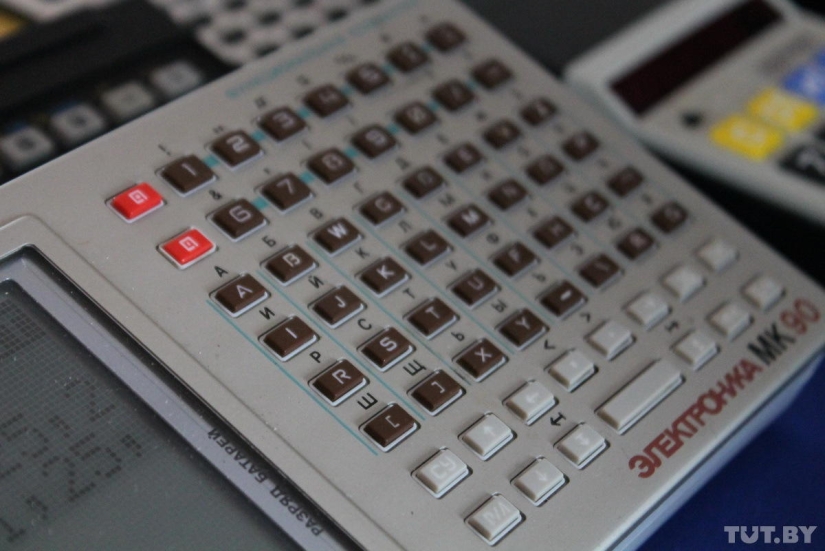
43. True, when the computer was turned on, only the inscription “Radio-86RK” appeared on the screen. Further communication with the computer takes place in a hexadecimal code. Computer programs were published in the form of dumps in the Radio magazine, which had to be “driven in” manually.
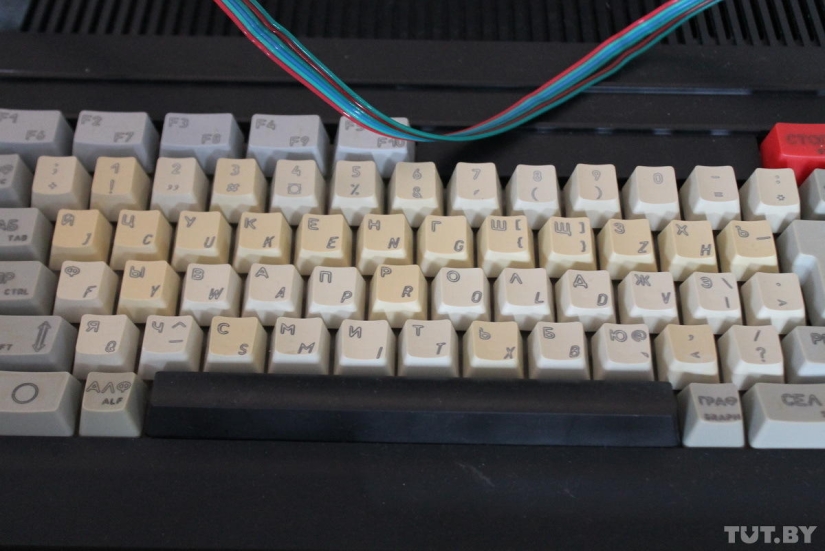
44. “IBM came to me when I wanted a real, serious computer. Pascal was studied at school, there were Olympiads, and an appropriate machine was needed. For 12 years I was given a "pisishnik". He, of course, is morally obsolete, but his younger brother plays it, he likes it, ”but Alexander himself had a twofold relationship with the PC.
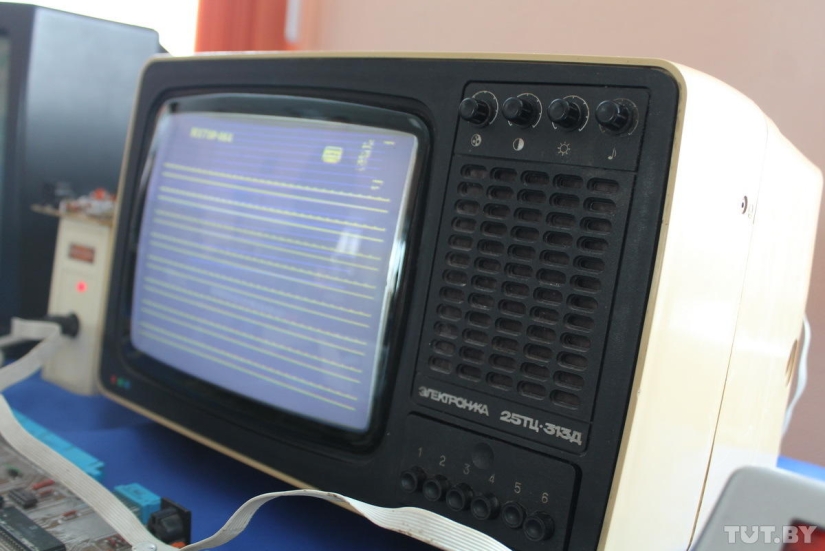
45. In the first year, acquaintance with a modern PC was carried out with excitement, it even reached the deletion of the Windows folder (“something it takes up a lot of space”), but after that disappointment came. “It’s sad, all computers are the same, similar to each other, I wanted to get Byte from under the sofa and connect it,” the businesslike expression on his face is again replaced by a smile. “But Byte broke down, offended that a new computer appeared!”
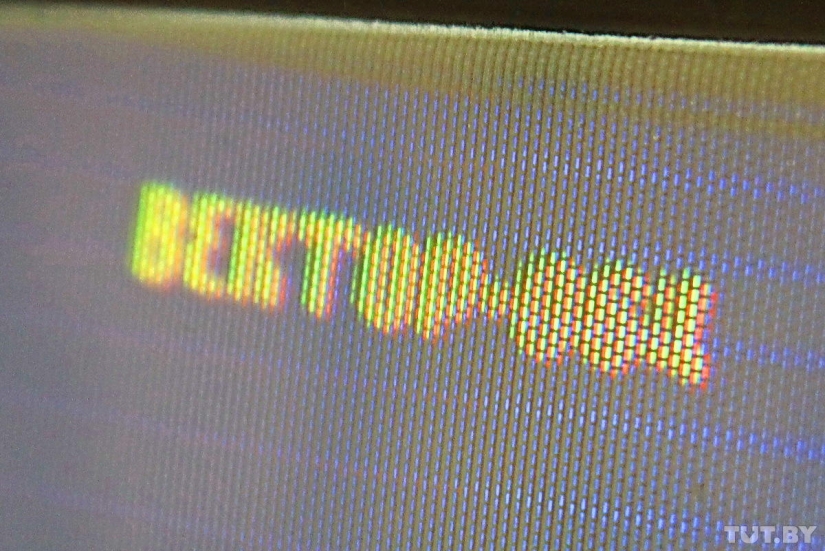
46. Soon a classmate gave Alexander "some old unnecessary computer" - Commodore-16. So Alexander discovered that there are other interesting computers besides Byte.
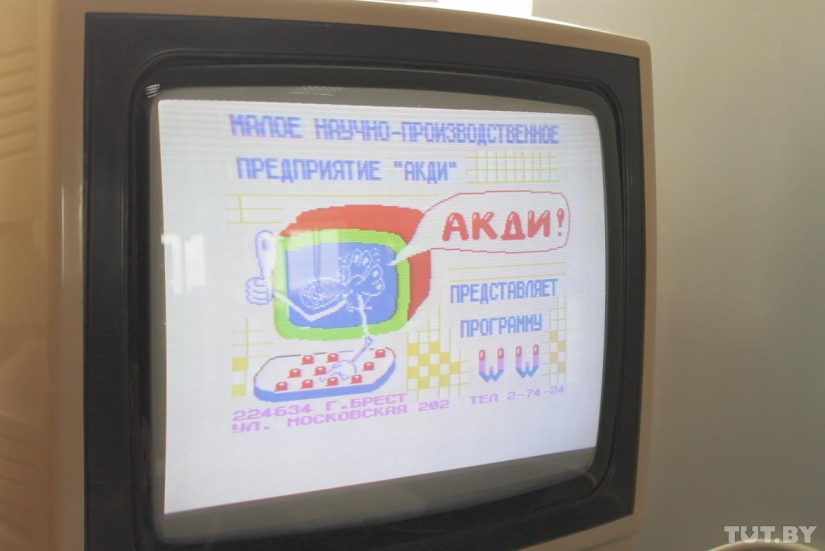
47. “In the new Windows computers, well, Linux - no variety! In old machines, each has its own software, its own architecture, striking differences. “Vector” has as many as 256 colors of graphics, while the other one, released in the same year, can only display text on the screen!” - says Alexander, along the way "resetting" the call on a quite ordinary for 2014 smartphone-"shovel", a thousand times more powerful than most of the exhibits.
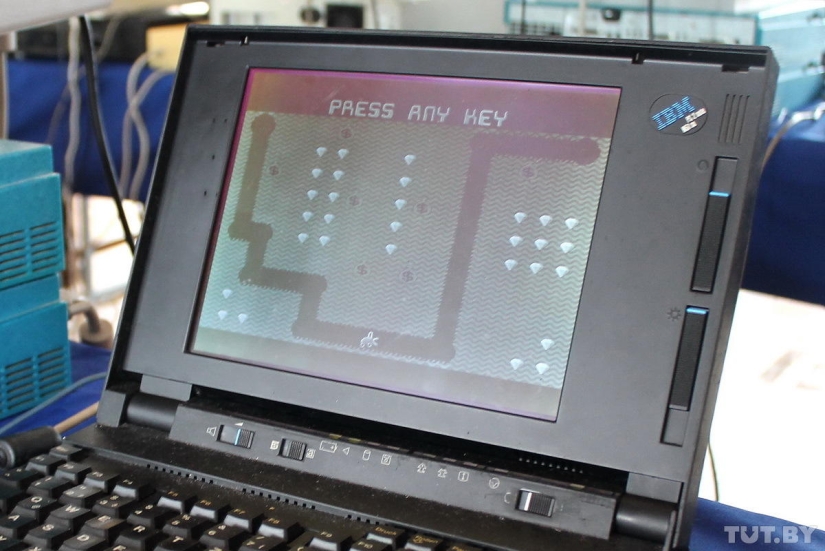
48. Having found out about Alexander's passion, a friend of his father brought a small arsenal of old computers: "If you load a passenger car completely, it would turn out three walkers." After that, I entered the university and moved to Minsk, and at the same time I got acquainted with online flea markets and the first unforgettable trip to Zhdanovichi.
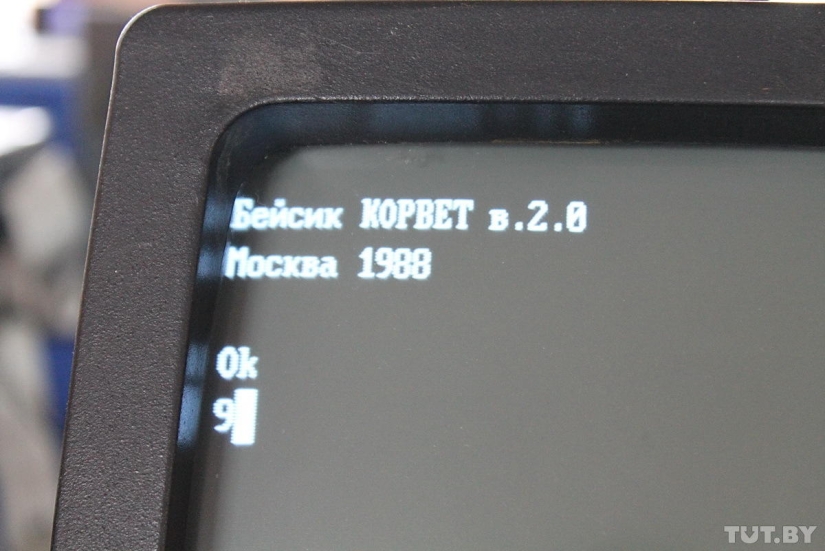
49.
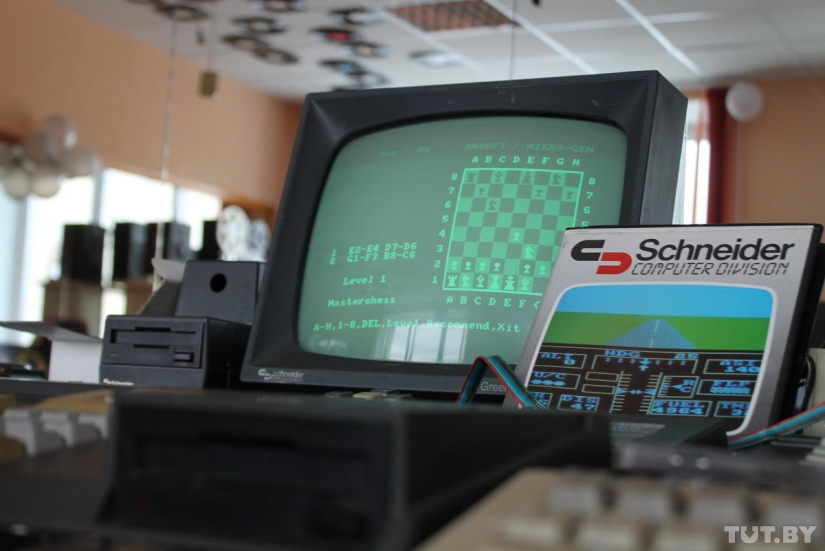
50.
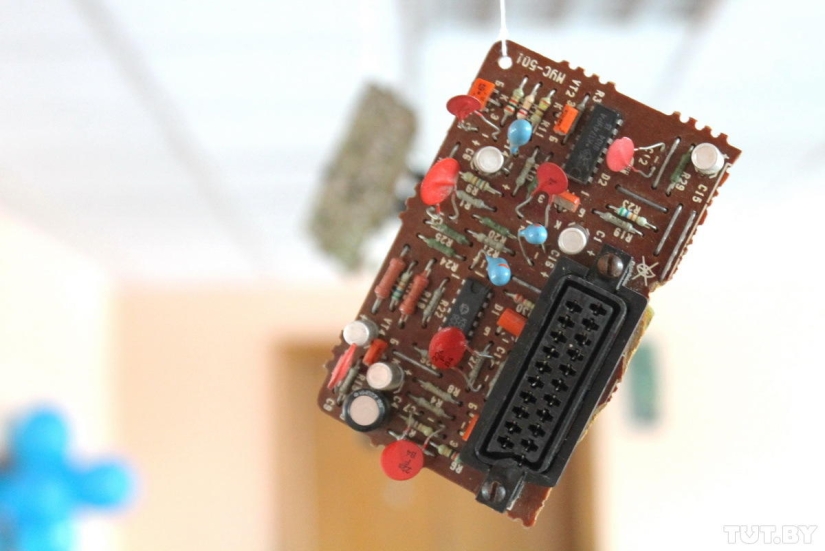
51.
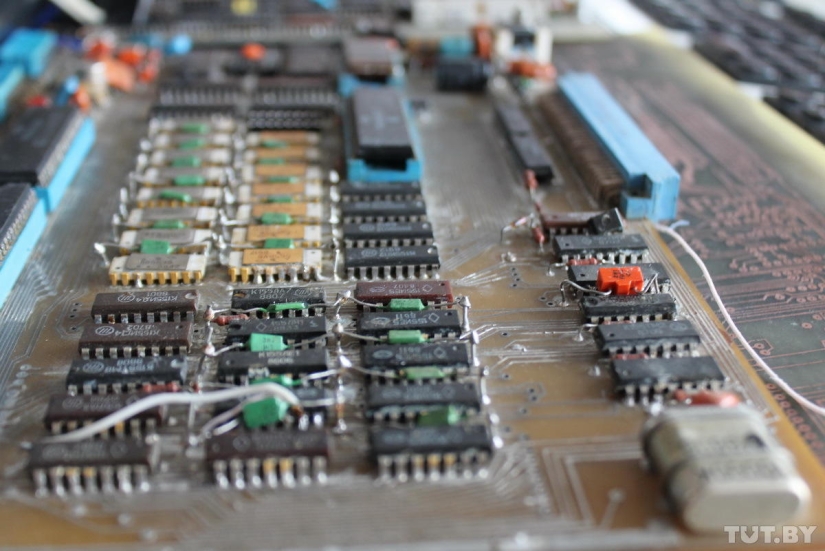
52. Many computers come to Alexander "dead", a lot has to be soldered and programmed. For some devices, I had to write emulators and even make converters from floppy disks to cassettes ...
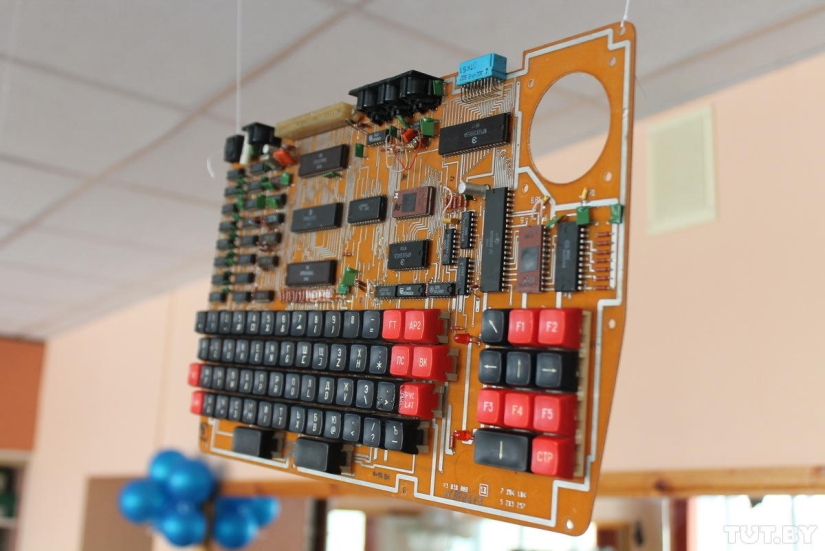
53. Alexander hopes that after the university there will be more time and money for the collection. “If I don’t do this, I will wither,” the collector confidently declares. “Perhaps a real museum of computing technology will be opened.”
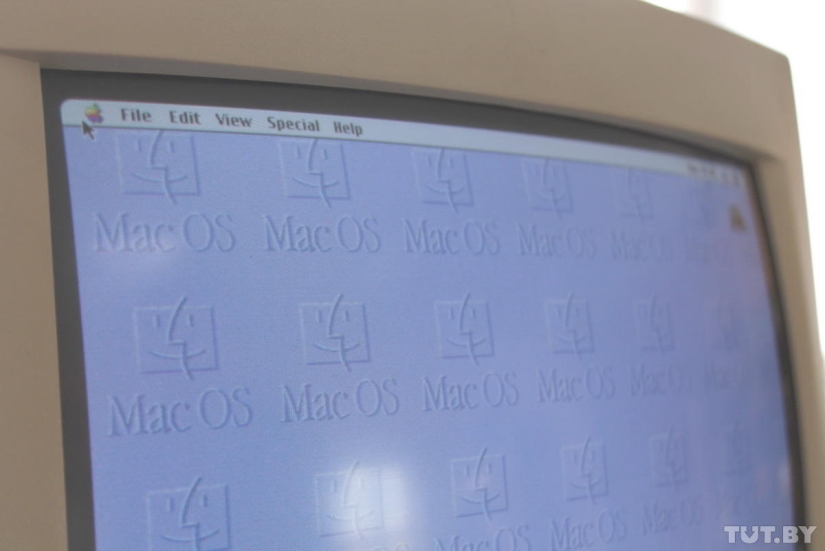
54.
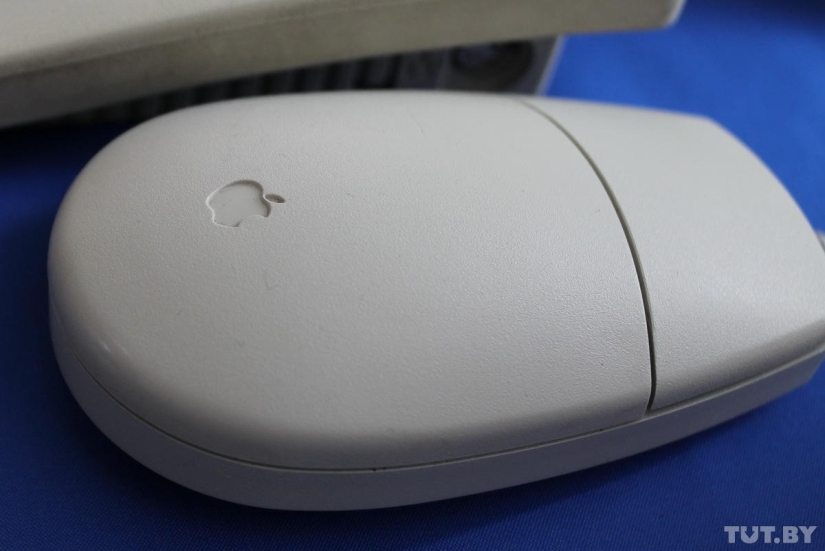
55.
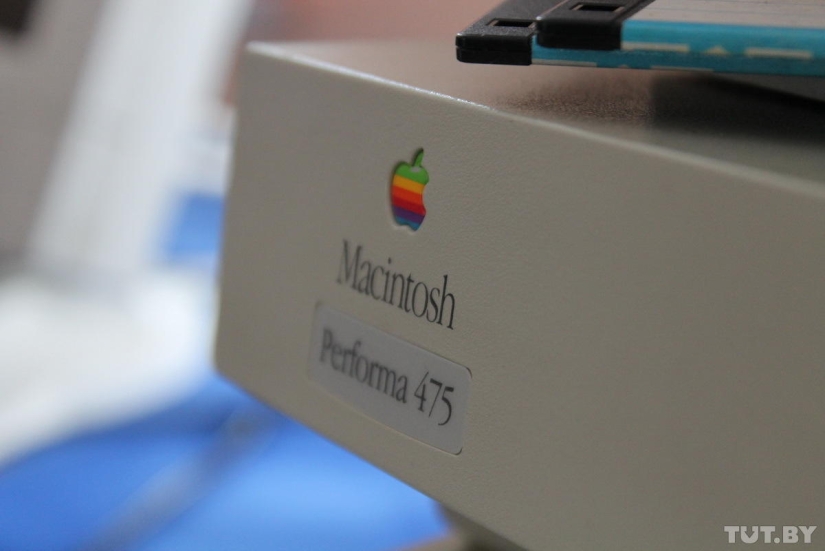
56.
Keywords: Computer | Nostalgia | Retro
Post News ArticleRecent articles

It's high time to admit that this whole hipster idea has gone too far. The concept has become so popular that even restaurants have ...

There is a perception that people only use 10% of their brain potential. But the heroes of our review, apparently, found a way to ...
Related articles

In the fall of 1972, Bill Yates traveled through the countryside in the vicinity of Tampa, Florida. At that time, he was studying ...

What do you associate the New year? Tangerines, chime, silver rain on the tree, gifts from Santa Claus and snow Maiden, and of ...

In this post we will talk about those times, when the concept of "care for children" had a completely different meaning than now. ...

New Year's is a time to surprise and delight loved ones not only with gifts but also with a unique presentation of the holiday ...